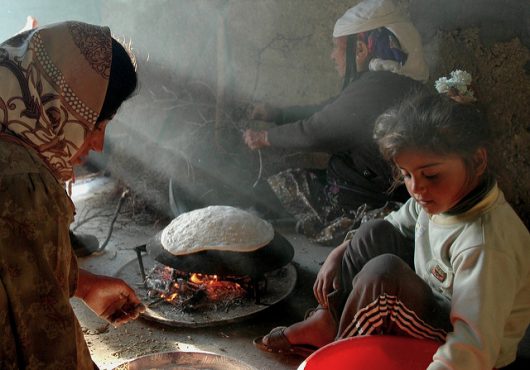Dwindling UN Funds Threaten Millions of Palestinians

The United Nations Relief and Works Agency (UNRWA) was established in 1949, after the 1948 Arab-Israeli conflict, in order to offer relief and works programs for Palestinian refugees. Since its inception, UNRWA has gone from helping some 750,000 Palestinian refugees to approximately 5 million Palestinians today.
Funding
Funded entirely by the contributions of U.N. member nations, UNRWA directs its efforts towards services ranging from education to healthcare to microfinance. Their budget is divided into 54 percent to education, 17 percent to health, 16 percent to support services, 9 percent to relief and social services, and 4 percent to infrastructure and camp improvement.
Unfortunately, these services are at risk due to a potential $250 million shortfall. A significant decline in the United States’ contribution, from $364 million last year to $60 million this year is said to be responsible for the shortage of funds.
Impact in Syria
Amidst the destructive conflict in Syria, 560,000 Palestinian refugees are among the worst affected. Through the Syria Crisis Response Plan, UNRWA provides vital humanitarian assistance through emergency healthcare, education, food and household items. In Syria alone, $411 million is necessary to maintain these crucial provisions.
The UNRWA has provided 44,000 young Palestinian refugees with the opportunity to pursue primary and secondary education. However, if the funding shortage cannot be met, their safety, as well as their education, is at risk.
Impact in Gaza
Through 22 health centers, UNRWA provides healthcare services to over 1.2 million Palestinian refugees in Gaza. Due to the ongoing conflict in Gaza and limited resources available, UNRWA also offers emergency food assistance to 830,000 Palestinian refugees living below the poverty line as well as 45,870 cash-for-work opportunities and counseling for upwards of 25,000 refugee children. Funding shortages place all of these essential services at risk.
UNRWA has 252 schools in Gaza that educate more than 240,400 students. These schools now face a similar, bleak fate to their Syrian counterparts should this massive funding gap fail to be filled. Aside from providing students a basic education, many of these schools include a dedicated human rights curriculum that promotes conflict resolution.
Impact in the West Bank
Palestinian refugees living in the West Bank are also at significant risk should the UNRWA not be able to resolve its funding shortage. UNRWA provides emergency food assistance to almost 36,000 households, in addition to working to improve camp environments for female and youth refugees. In 2012, for example, UNRWA assisted 113,374 food-insecure Palestinian refugees.
Significance of UNRWA Funding
According to Pierre Krahenbuhl, the commissioner general of the UNRWA, the most urgent threat the funding shortage poses is to emergency food aid to Palestinians in Gaza and Syria. However, the UNRWA has also been instrumental in offering high-quality education throughout the region, promoting gender equality, providing near-universal immunization, investing in small businesses, and providing food assistance to 1.7 million refugees.
What do all of these services have in common? They have been integral to raising Palestinian refugees out of poverty and ensuring basic human rights. We cannot allow UNRWA’s efforts to disappear. Failure to offer these resources threatens millions of Palestinians and only guarantees continued hardship for their communities and the region.
– McAfee Sheehan
Photo: Flickr
